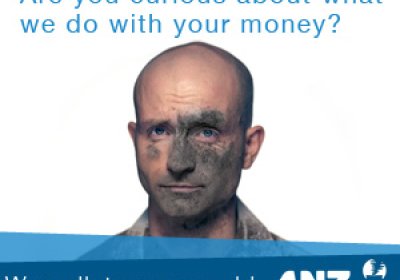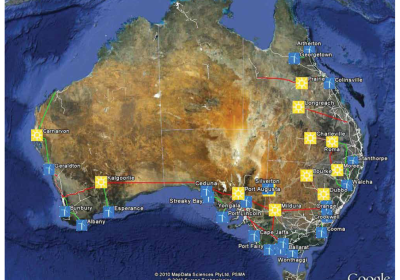With the Paris climate talks just around the corner it is timely to consider what effective policies to cut emissions might look like. Nationalisation and direct public investment are key policies that have historically been “bread and butter” political demands both for socialists and for the more radical voices within social democratic parties.
Climate activists from the Greens and Labor Environment Action Network should revisit these ideas, as they are a useful alternative to the dead end that is carbon trading.
Direct public investment
Zane Alcorn
The New South Wales government's nominally independent Planning Assessment Commission (PAC) has approved a fourth coal loader for the port of Newcastle.
Port Waratah Coal Services (PWCS) initially applied to build the loader in 2012 at the height of the resources boom. Since then coal prices have crashed, caused by the fact that renewable energy is now a preferred source of “new build” power plants across the globe and fewer new coal-fired power plants are being built than was forecast.
The Renewable Energy Target could become a victim of its own success. A review into the scheme, released on August 29, has recommended the federal government close new investment into renewable energy because it has produced more energy than originally planned.
But Labor, Greens and Palmer United Party senators have vowed to block any changes to the scheme.
At the same time, a debate has emerged among climate activists about whether we should “change tack” when it comes to campaigning on the issue of climate change.
After attending the national day of action on climate change, organised by GetUp on November 17, Sally Rawsthorne wrote in the Guardian that “fringe dwellers” like the Socialist Alliance and the Green Left Weekly participating in the rally “does climate action a disservice”.
With Tony Abbott ruling the roost in Canberra, it is important for the climate movement in Australia to take stock and have a discussion about where to go next.
It is easy to be discouraged by the election of Abbott. However, it should not be forgotten that the election was more than just a “referendum on the carbon tax”, it was also an electoral snapshot of a country that has been subjected to an exceptionally strong barrage of brainwashing for the past few years. The ideas spread through the media are powerful, but they are not invincible.
More than 100 people encircled by chalk rainbows greeted the weekly meeting of Newcastle city council on June 25.
Chaired by Save Our Figs veteran Debbi Long, the rally heard from Greens councillors Michael Osborne and Therese Doyle; federal Labor candidate Sharon Claydon; Michelle Lancey from support service Parents, Friends and Family of Gays and Lesbians; and Miss La Bang, a flamboyantly dressed bridal drag queen representing the radical rainbow army.
The NSW Coalition government announced plans on December 13 last year to cut the Newcastle rail line at Wickham station. As part of the urban renewal strategy document, passengers would have to transfer to buses to complete the last two kilometres of their journey to Newcastle.
A long-running community group, Save Our Rail, has twice stopped former Labor and Coalitions governments' attempts to cut the line.
Here are ten reasons why the campaign needs to continue:
There is no solution proposed for rail users affected by the cut
About 100 people gathered at the Jerrys Plains community hall on January 29 to outline concerns about the encroachment of the coal industry on their township and to begin a united fightback.
Anti-coal activist Jonathan Moylan hit the headlines after he distributed a fake media release in the name of ANZ bank on January 7. It claimed that the bank was withdrawing a $1.2 billion loan that would finance the proposed Maules Creek coalmine owned by Whitehaven Coal, due to its corporate responsibility policy.
It read: “We want our customers to be assured that we will not be investing in coal projects that cause significant dislocation of farmers, unacceptable damage to the environment, or social conflict.”
If the official government line is to be believed, Australia is only a minor player when it comes to our greenhouse gas emissions.
In this view, Australia is powerless to bring about international action to cut emissions. Indeed, any such efforts are only likely to amount to economic self-sabotage.
From Laggard to Leader, the new report from research group Beyond Zero Emissions, demolishes these arguments. Far from being an inconsequential emitter, Australia’s carbon footprint is immense.
It was a week which started with federal treasurer Wayne Swan having a go at the mining billionaires for distorting our democracy, but which soon entered a new phase whereby the Labor party illustrated the rather narrow range within which our two party system has room to move.
Peruvian-born Harlem emcee Immortal Technique rocked a full house at the Metro in Sydney on January 19 as part of his debut tour of Australia and New Zealand.
- Previous page
- Page 4
- Next page










